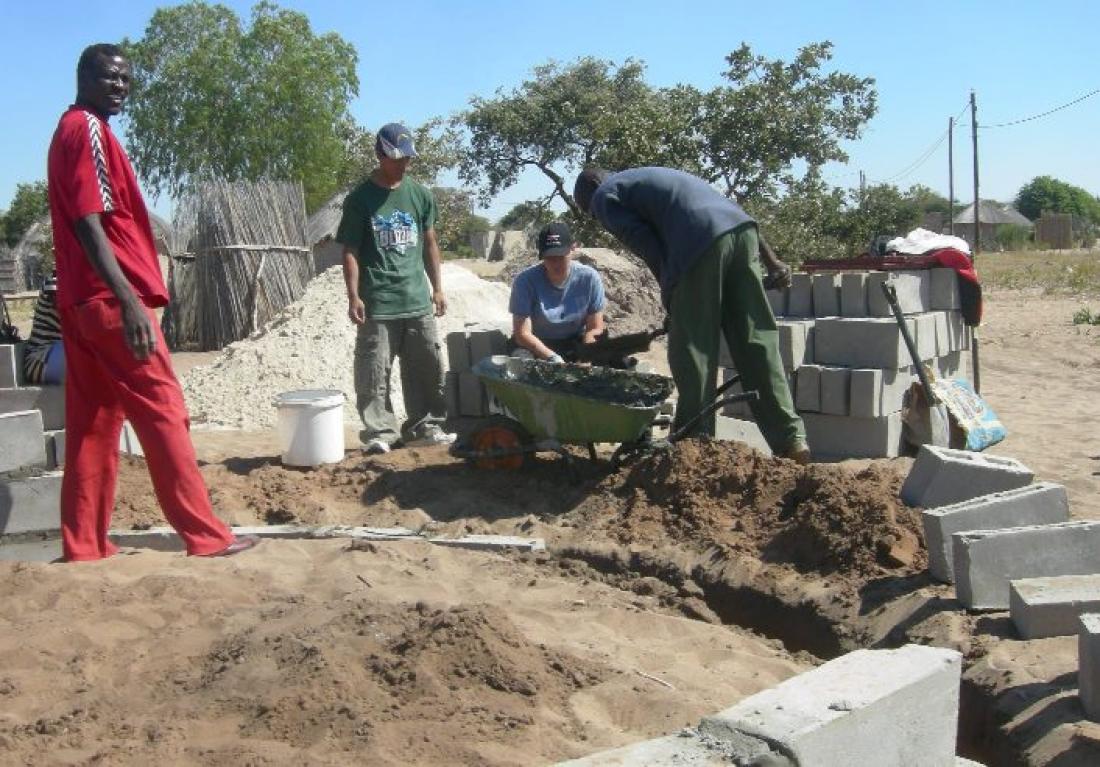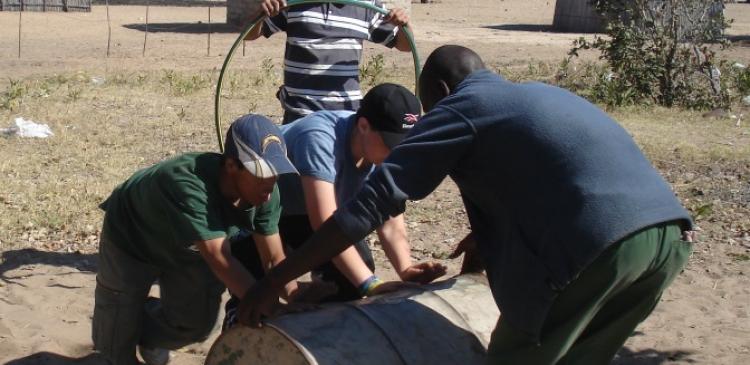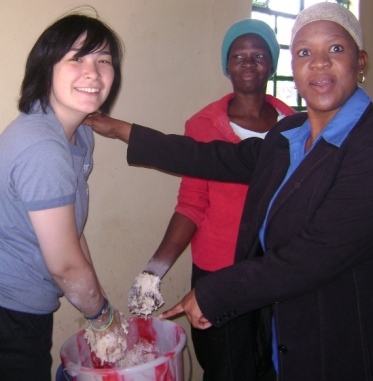The grim reality
While the Internet has opened up cross-cultural channels for teens everywhere, distances between Northern communities and the long winter months can still be very isolating. Northern youth battle many challenges, among them suicide and drug and alcohol abuse. School dropout rates typically exceed 75% in some communities.
A program is born
In 1997, a research project funded by the International Development Research Centre (IDRC) highlighted the issues Aboriginal youth face. A survey of 100 Nunavut youth showed that adolescents with opportunities to travel were able to draw on their experiences to stay focused and succeed in school. Based on these findings
– along with start-up funds from IDRC and other donors – the Northern Youth Abroad program (NYA) was born.
Launched in Nunavut in 1998 with just 10 participants, NYA expanded to include the Northwest Territories in 2005. To date, more than 200 youth have participated.
“NYA has lasting impacts on how youth across the North see themselves, the world, and their place in it,” says Donna Stephania, current Chair of NYA’s Board of Directors, and an educator in Nunavut for 18 years. “When I asked one of my students, who had recently completed the International program in Botswana what she had learned, she replied that she would never again say she had nothing: she had seen firsthand [in Botswana] what having nothing truly meant.”
Gaining valuable experience
The program, which spans 10 months, includes pre- and post-volunteer work experience beginning in participants’ home communities. It also consists of two phases: one in other parts of Canada and one in Africa. During the Canadian phase, participants spend six weeks living with host families in communities across Canada. They gain valuable work and budgeting experience, along with “an orientation to life outside their culture.”
Great care is taken to find work placements to match each individual’s interests, whether it’s working alongside an auto mechanic, as a zookeeper’s assistant, or as a stagehand at a community theatre.
A greater journey
For some participants, the first phase is only the beginning of a greater journey. Each year, 6 to 12 phase-one graduates travel to Southern Africa, spending seven weeks volunteering in Botswana or Swaziland. Once settled they may find themselves volunteering on game reserves, teaching music, or demonstrating basic computer skills. Some take language lessons and share Inuit and Dene traditions.
While visiting Africa, participants posted blog entries on the NYA website. They shared their thoughts and lessons learned from their experiences. “I now know that I have many options to choose from when it comes to my future,” said Tracy Evyagotailak, a 2008 international phase participant, in her blog.
Success for participants
In Nunavut, the program’s success has been remarkable and most NYA alumni have gone on to finish high school. Several former participants have continued their education and embarked on successful careers in nursing, teaching, or auto mechanics.
Supported by the Walter and Duncan Gordon Foundation, NYA welcomed an alumnus to its staff. Karen Aglukark joined the team part-time as she completes a political science degree at Carleton University. “I did have plans to pursue a career and goals to achieve, but it was only after the program that I understood how possible they were,” she said.
The future of Nunavut
To date, initial impacts of the program have been cited as positive. Notably, most participants stay home, contrary to concerns that the experience would draw young people away from their Northern homes.
Instead, NYA alumni may be the future of the North. The Government of Nunavut has a mandate to employ 80% Inuit in its public service. The program provides participants with concrete skills that NYA believes “are crucial if youth are to play a greater role in the decision-making process of the Nunavut territory.”
NYA strives to help youth learn not only what they can contribute to their communities, but also to the wider world. As expanding resource extraction, tourism, and other industrial development opportunities help build a self-sustaining economy in the North, NYA alumni may have a unique role to play globally.
Written by Ottawa-based writer Caroline Robert with files from Frances Philips.





